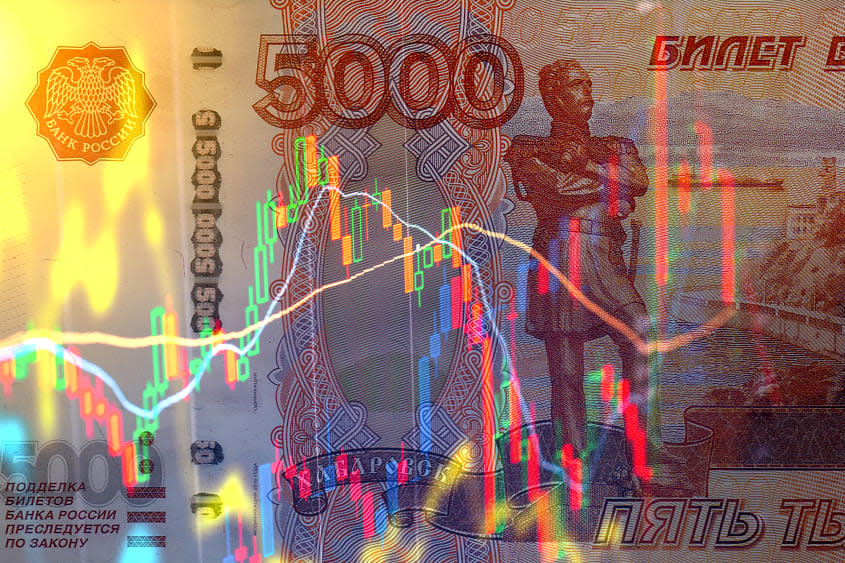Do sanctions work?

- Oops!Something went wrong.Please try again later.
Economic sanctions have become the go-to response to the misdeeds of rival powers, rogue nations, despots, and evil-doers of all sorts. The coup leaders in Niger are the latest targets, with neighboring West African nations imposing financial penalties and threatening force unless ousted President Mohamed Bazoum is returned to office. The United States and Western allies have hammered Russia with sanctions since it invaded Ukraine, and China over its trade policies. Washington recently blacklisted 20 people in the Maldives for allegedly providing financial support to ISIS.
Some commentators have gone so far as to say the United States has become "addicted to sanctions." The New York Times notes that the U.S. Treasury Department's Office of Foreign Assets Control sanctions list had 912 names on it in 2000. By 2021, that figure had jumped to 9,421. The Treasury Department slapped more than 2,500 sanctions against Russia, including companies and individuals linked to its war machine, after President Vladimir Putin launched his invasion of Ukraine in 2022.
But sanctions aren't exactly a quick fix, particularly when the goal is to disable or topple a hostile regime. "Weren't the sanctions supposed to plunge the ruble into a death spiral?" Salon recently asked. The U.S. has enforced a broad trade embargo against Cuba since 1960, but more than six decades later the Caribbean island is still run by the Communist government handed down by the late Fidel Castro. North Korea faces long-standing, crushing sanctions, but it's still testing missiles and nukes. Is all this financial punishment doing any good?
Sanctions hurt the wrong people
The price of wheat has skyrocketed because of Russia's invasion of Ukraine and the sanctions designed to punish Moscow, said Anuradha Chenoy at The Nation. Russia is still raining missiles onto Ukraine, and the four companies that control 70% to 90% of the global grain trade — Archer Daniel Midland, Bunge, Cargill, and Louis Dreyfus — are gorging themselves on fattened profits. Meanwhile, "food grains became unaffordable and 345 million experience acute food insecurity." Putin has not changed, but "Africa has become collateral damage in the sanctions game."
Sanctions are a supposedly "low-cost" alternative to war the U.S. increasingly relies on, said The New York Times in an editorial. This nation accounts for "42 percent of sanctions imposed worldwide since 1950." But leaders often fail to factor in huge costs on both "vulnerable people" and "banks, businesses, civilians, and humanitarian groups" that shoulder the burden of compliance. And "open-ended" sanctions like the ones used to attempt regime change in Venezuela and Cuba often just encourage defiance. They're easy to impose but hard to lift, often resulting in "zombie sanctions" that do nothing but complicate more urgent diplomatic matters. Unless they're tightly focused and reversible once specific goals are met, sanctions "can ultimately undermine American efforts to promote peace, human rights, and democratic norms across the globe."
Done right, they do the job
It's hard to deny that some sanctions are working, said Dan Strumpf and Clarence Leong in The Wall Street Journal. China's tech sector has been "showing the strain from last year's sweeping U.S. export restrictions, which seek to stall Beijing's ambitions in cutting-edge industries such as artificial intelligence and supercomputing" by barring exports to China of the most advanced computer microchips. Chip exports to China are falling; Chinese companies report "struggling to get key components and machinery." China wants to "lead the world" by 2030 in artificial intelligence, one of the day's great technology battlegrounds. But, thanks to these sanctions, China's AI contenders "risk falling behind."
Some complaints about sanctions are fair, said Hal Brands at Bloomberg. They indeed "have a lousy record in removing hostile regimes," and you can't use them "gratuitously" without making it harder to get allies behind them when they really matter. But the U.S. and its allies are locked in "a protracted standoff with a belligerent Russia," and "waging an all-encompassing competition with China. Containing these rivals will require containing their economic and military development, which means denying them money, technology, and other tools they might use to leap ahead." That's where sanctions can really work. "They are increasingly central to the great-power contests that will define our age."

